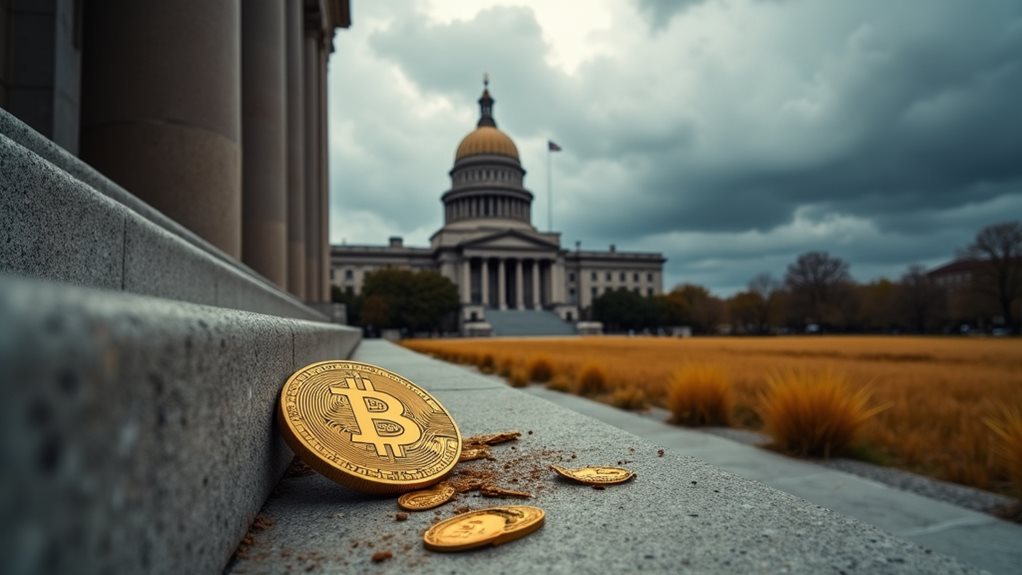Oklahoma’s rejection of House Bill 1203, the Strategic Bitcoin Reserve Act, has folks buzzing—and not in a good way. The bill, which passed the House 77-15, aimed to let state funds invest up to 10% in Bitcoin to fight inflation. Boom, shot down 6-5 in the Senate. Too risky, they said. Volatility? Sure, it’s a gamble. Fiduciary duty? Big concern. Honestly, it’s a mess. Stick around to uncover the deeper drama.

While some states are diving headfirst into the crypto craze, Oklahoma just slammed on the brakes. House Bill 1203, dubbed the Strategic Bitcoin Reserve Act, got tossed out like yesterday’s news in the Senate Revenue and Taxation Committee on April 15, 2025. Introduced by Rep. Cody Maynard, this bill was all about letting state savings and pension funds dip their toes—up to 10%—into Bitcoin. Big dreams of hedging inflation, protecting earnings, even leading the fintech charge. Yeah, right. It passed the House with a solid 77-15 vote, but the Senate? Nope. A narrow 6-5 smackdown ended that fantasy.
Let’s unpack this mess. The bill’s supporters, like sponsor Sen. Brian Guthrie, pitched it as a low-risk diversification play. Financial freedom! Sound money! Blah, blah, blah. But the Senate wasn’t buying it. Four Republicans and two Democrats teamed up to kill it, citing volatility and risks. Fiduciary duty concerns loomed large—echoes of past ESG investment spats. Are we really gonna gamble public funds on something as wild as Bitcoin? Apparently not. This rejection mirrors setbacks in other states like Montana and North Dakota, where similar Bitcoin reserve initiatives have also failed to gain traction Bitcoin reserve setbacks. Supporters argued that Bitcoin could safeguard purchasing power against inflation, aligning with broader visions for digital assets in the economy. The federal government’s own approach of holding seized bitcoins worth $17.5 billion demonstrates a cautious strategy toward digital assets.
Even Sen. Christi Gillespie flipped her vote to ‘Yes’ after hearing from constituents. Too little, too late. Oklahoma’s out of the Bitcoin reserve race. Done.
And what about State Treasurer Todd Russ? He was game to invest if the bill passed, but he’s already tangled in legal battles over investment autonomy with the AG. No direct quotes on this flop, though. He’s busy chairing the TSET Board, fighting for independence. Gotta wonder if he’s secretly relieved to dodge this crypto bullet.
Meanwhile, Oklahoma’s crypto story isn’t totally dead. There’s SB 325, the Bitcoin Freedom Act, floating around—think voluntary Bitcoin payments for salaries. Separate deal, unclear status. And hey, they did pass the Bitcoin Rights Bill last year. Small wins.
Still, HB 1203’s crash and burn stings. Was it bold innovation or just plain reckless? Lawmakers picked their side. Risks trumped hype. So, while other states flirt with digital gold, Oklahoma’s sitting this dance out. Tough luck, crypto fans. The brakes are on—hard.









